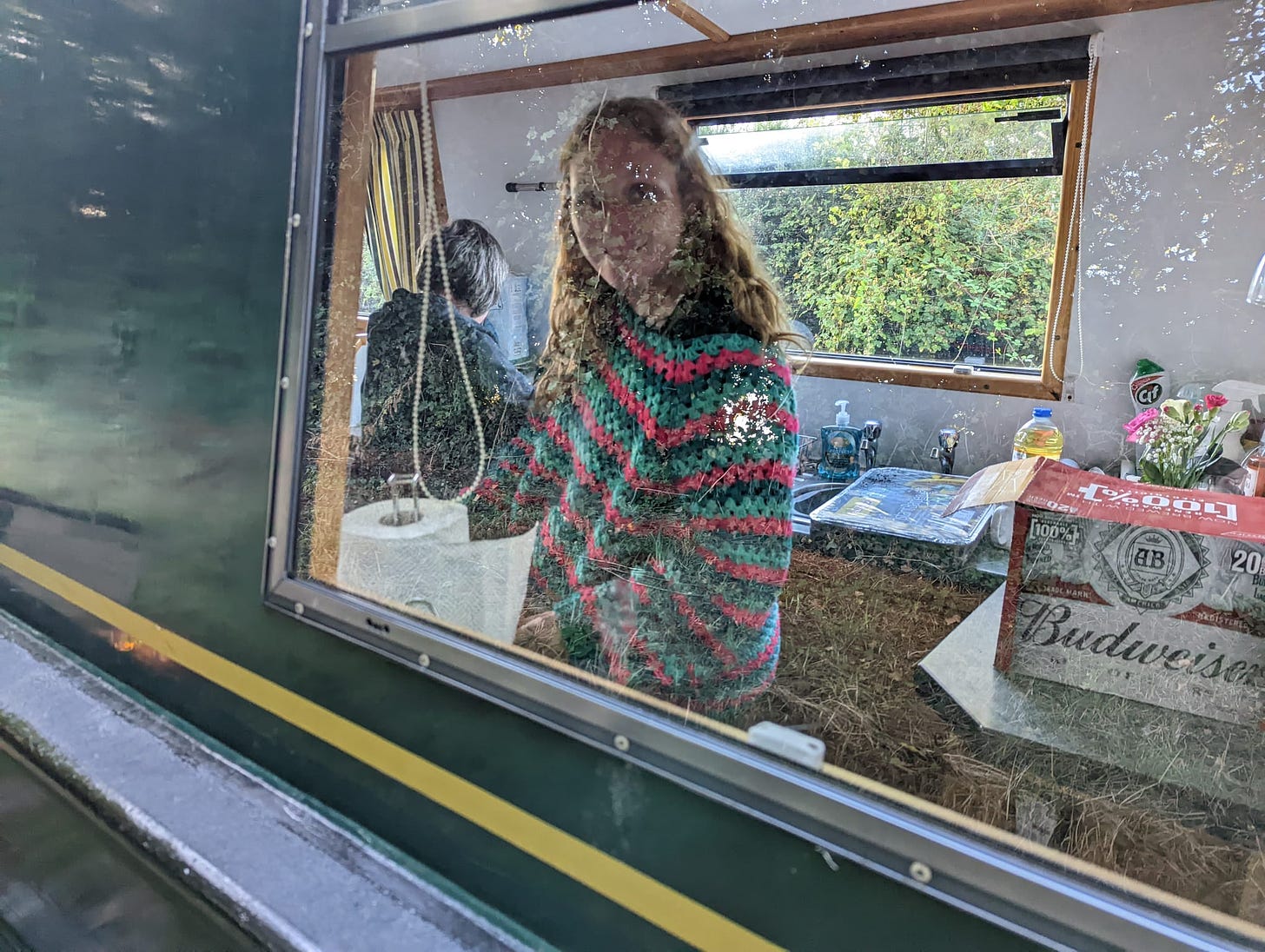Hello and welcome to another edition of Substack Reads.
This week we bring you another jam-packed selection of writing, words, and audio from across Substack. Some names you may recognize, while others you might not have met before: Caroline Criado Perez reacts to the passing of Queen Elizabeth II, Leo Robson remembers the revolutionary film director Jean-Luc Godard, and Max Read uncovers a creepy dark side to the AI-generated images sending shivers down our spine.
As ever, we love to read your recommendations, as do fellow readers here. So please leave a comment with a link to a recent post, podcast, or Substack you love.
NEWS
On losing a national grandmother
As a left-wing feminist, Caroline Criado Perez didn’t expect to be affected by the British monarch, but the death of Queen Elizabeth II means more to her than the passing of heirship from one royal to another
—Caroline Criado Perez in Invisible Women

Whatever you think of the institution of the monarchy, there is simply no denying that this was a woman who did dedicate her whole life to the ideal of public service. Two days before she died, the queen was still getting dressed up to welcome in the new PM, smiling, made up, posing for photos, doing tiresome small talk. She should have been in bed!
This final act does seem to represent everything about her approach to her job—and why her loss is hitting so many of us so hard. Out of all the people who hold authority in this country, she feels like one of the very last who truly believed in the ideas of duty and of being a public servant. Those musty, old-fashioned words, which, now they seem to have left us, appear so much more valuable than we realised.
She was never pushy or showy. You never felt that she was putting herself first, or that she was allowing her own feelings or emotions to interfere with what she saw as her duty to the country—to the extent that we really have no idea what her feelings, emotions, or wishes were. Never complain, never explain, personified. That is extraordinary—not least when you compare her to pretty much everyone else in supposed public service.
MUSIC
Everybody loves a waitress
Waitresses appear in music lyrics throughout the ages, but what is it about this multi-skilled job that captures the imagination of so many songwriters?
—Lo Carmen in Loose Connections
I began working at a French patisserie/restaurant opposite the super-busy Paddington Markets, starting at 6 a.m. on a Saturday and often knocking off at 6 p.m. Only very young women were employed there, and we were required to wear a very demure variation on a French maid/schoolgirl uniform. We were on our feet all day and, with the lack of supervision afforded us by how constantly busy the joint was, we started sneaking cakes and shovelling them down our throats for our own entertainment, keeping a secret running tab of how many we managed to eat in one day. I eventually won, eating all 12 cakes on the menu in one 12-hour shift, including the dodgy French Pudding, which we believed was made up of all the stale cakes from the week before, ground together and generally to be avoided. It was actually pretty delicious. The place was owned by an older French man and his extremely efficient young wife, Sally, from Brisbane, who was expected to fake a French accent at all times.
[...] Everybody loves a waitress, and they make great heroines.
Waitresses are independent, they run their own race, stand on their own two aching feet. I first heard Freddy Fender’s plaintive version of ‘The Girl Who Waits on Tables’ (yep, she used to wait for him at home) and was so glad for her that she got away from that boring, toxic scene and got out amongst the jukeboxes and the tips.
I love Joni Mitchell’s setting of the scene in Barangrill of ‘Three waitresses all wearing/ Black diamond earrings/ Talking about zombies and Singapore slings,’ apparently written after a memorable visit to a late-night truck stop where an attendant sang to Joni when she wouldn’t sing for him.
Do most books really only sell a dozen copies?
Fiction author Lincoln Michel digs into why publishing statistics are so confusing and receives a comment from the lead industry analyst from NPD BookScan, Kristen McLean
—Lincoln Michel in Counter Craft, recommended by Shane O’Mara
One thing that’s true is publishing works on a blockbuster model. Most books sell relatively few copies, and a handful sell millions. The statistics about the vast majority of traditionally published books selling fewer than 5,000 are likely true. It’s the bestsellers that keep the industry afloat financially. And it’s true that publishers often have no idea what will sell. It’s a throw-against-the-wall-and-see-what-sticks industry. Are there a lot of problems with it? A lot of things that could be fixed? Ways that publishers could better market the backlist or frontlist? Yes! But it’s not quite as dire as some of these statistics suggest.
SCANDAL
The sugar babies of Stanford University
Quizzing her classmates on why they share sexually provocative texts and videos with men for money, Stanford graduate Nicola Buskirk discovers a dark power play more complex than it first appears
—Nicola Buskirk in Pirate Wires
There is precious little data on the sheer volume of thirst traps posted by young women and, often, men—some of whom are clearly underage—on TikTok every day, let alone every month or year, save a few surprised forum posts. Every new TikTok-viral song poses a new opportunity (4 billion to be exact) to be suggestive without being explicitly sexual, which is often not the case with much OnlyFans content. But both OnlyFans and TikTok thirst traps have something in common: a personal touch that draws in viewers—and money.
Though neither Cassie nor Lainey set out to be sugar babies (their word for what they did), they had the foresight to set strict boundaries. Their sugar-babying consisted of sexting, sexual voice recordings, and some suggestive but clothed Snapchats. They say there were no nudes, no phone calls, no meetups. They didn’t publicize where they attended school, but people found out anyway and sent the above-mentioned gifts.
FILM
Remembering a visionary
With so many thing to say about the French-Swiss film director Jean-Luc Godard, writer Leo Robson lists 91 tributes from his career and life
—Leo Robson in Taproot
21. Michael Wood, revisiting Godard’s early films, 2003
“We seem to be going back in time and seeing the youth of the cinema…. Godard gave us back the adventure of finding a world on film, the sense of looking at familiar things as if we had never seen them.”22. A.S. Hamrah, 2020
“Like Cocteau and Barthes and Wollen, Godard deconstructed the movies, shaping them into new forms.”23. Angela Carter, on the 1960s
“My whole experience of the next decade can be logged in relation to Godard’s movies.”
HORROR
When AI gets spooky
Meet Loab, the AI-generated image reappearing and starting to freak everyone out
DIARY
An ode to the end of summer
The autumnal shift is as much about savoring as it is about hunkering down, watching the same movie over and over again, writes Rayne Fisher-Quann
—Rayne Fisher-Quann in internet princess
it’s september now, and i keep getting too hot outside. this is because i start dressing for fall weather once i decide that it probably should be fall by now, even though it’s as summer as it was a week ago. so i wear big chunky sweaters and boots and button-down shirts and i sweat and i sweat and i sweat. through it all, i’m comforted by the knowledge that eventually, i’ll be right.
[...]
i remember the feeling of teenage obsession, and i miss it desperately. few things about our everyday lives are more genuinely magical to me than the way that loving something with commitment can rewire your understanding of time: instead of dates or semesters, i can place moments of my early life inside the year where i only read vonnegut, the month i first loved the smiths, the autumn i spent with that rilke poem. it manages to make time physical — it turns it into something that can be tasted and touched. i want my life to be textured by the periods i spent perfecting a stone fruit hot honey cake or watching murder mysteries. wouldn’t it be wonderful to one day taste a cake and remember how you felt in september?
LISTEN
I sometimes feel I’m not allowed to miss you
Catriona Innes writes about grief in all its forms. This week, she reads aloud a poem she wrote about her late grandmother
—Catriona Innes in Crocuses in the snow
Substack Reads is a weekly roundup of writing, ideas, art, and audio from the world of Substack. Posts are recommended by staff and readers, and curated and edited from Substack’s U.K. outpost by Hannah Ray.
Got a Substack post to recommend? Tell us about it in the comments.


















As a Brit I am completely hacked off with what I see as coercive mourning.
If people want to pay their respects on an individual basis, then fine but to turn our news coverage into a 24/7 death fest and everyone have to suffer what amounts to a national shutdown on Monday, in my eyes is just plain wrong.
Every now and again the argument is raised about doing away with the monarchy but this last week has made me realise it is as futile as the chat us Brits have every year about whether or not to carry on putting the clocks back. A completely pointless conversation that never moves on.
Stanford sugar babies is a crazy article. Can’t believe onlyfans has 50x the revenue of substack. Pirate wires is a must read every week